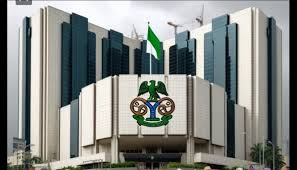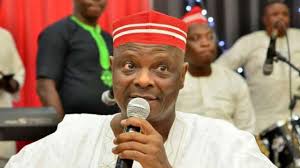Business
Bank Bailout: How Was The Money Spent?
Although, hundreds of well-trained eyes are watching over the $700 billion that Congress last year decided to spend bailing out the nation’s financial sector, it’s still difficult to answer some of the most basic questions about where the money went.
Despite a new oversight panel, a new special inspector-general, the existing Government Accountability Office and eight other inspectors general, those charged with minding the store say they don’t have all the weapons they need. Ten months into the Troubled Asset Relief Programme, some members of Congress say that some oversight of bailout dollars has been so lacking that it’s essentially worthless.
“TARP has become a programme in which taxpayers are not being told what most of the TARP recipients are doing with their money, have still not been told how much their substantial investments are worth, and will not be told the full details of how their money is being invested,” a special inspector-general over the programme reported last month. The “very credibility” of the programme is at stake, it said.
Access and openness have improved in recent months, watchdogs say, but the programme still has a way to go before it’s truly transparent.
For its part, the Treasury Department said it’s fully committed to transparency, and that it’s taken unprecedented steps to report the status of TARP to the public. It regularly posts information on which banks have received money, as well as details about each of those transactions. Further, Treasury said, it doesn’t agree with all of its watchdogs’ recommendations, which it said could hamper the programme’s effectiveness.
TARP was passed in the midst of last fall’s financial meltdown as a way to keep American banks from falling deeper into the abyss.
The programme was controversial from the start. Its supporters say it’s helped spark bank lending in the country, but critics say it’s unfairly rewarded the big banks and Wall Street firms that pushed the economy to the brink.
The programme also has undergone a major transformation. When the Bush administration first went to Congress for the money, TARP’s main purpose was to buy up hundreds of billions of dollars in bad mortgages and so-called mortgage-backed securities that were bought and sold on Wall Street.
Today, TARP consists of 12 programmes that sent those hundreds of billions of dollars to big banks, but it’s also bailed out auto companies, auto suppliers, individuals delinquent on their mortgages, small businesses and American International Group, the big insurance company.
The watchdogs now must oversee the maze that TARP has become.
Just because a lot of people are watching, however, doesn’t mean they get everything they want to see.
One of the most prominent watchdogs is Elizabeth Warren, a Harvard Law School professor who chairs a TARP oversight panel created by Congress.
Her panel has released 10 major reports that examine TARP’s plans and policies, finding that much of the work by the Treasury and the Federal Reserve has been opaque, with unclear or contradictory goals.
One report took Treasury to task for vastly undervaluing more than $250 billion in transactions with the country’s major banks, and another suggested several ways to revamp federal regulation over the financial sector. Other reports have criticised the Treasury for its initial defensiveness in opening its books.
Despite its mandate, however, the panel doesn’t have subpoena power. That means it can ask, but can’t compel, officials from Treasury, the Federal Reserve or the nation’s banks to testify.
Henry Paulson, the Treasury secretary under former President George W. Bush, repeatedly stiff-armed the panel. Timothy Geithner, the current secretary, has been more open, but so far has testified just once before Warren’s group. Geithner is scheduled to appear again in September, and has agreed to do so quarterly, and two other senior Treasury officials also have appeared.
The relative lack of testimony from top officials, however, is one reason why critics of Warren’s panel think it hasn’t delivered on its promise.
In June, in an otherwise mundane congressional hearing, Republican Rep. Kevin Brady of Texas surprised Warren with an aggressive critique of the panel, saying it’s failed to help taxpayers understand what Treasury is doing with the billions at its disposal.
“There’s been very little value that the panel has brought to this issue or even insight on how these bailout dollars have been used,” he said. “I frankly believe at this point, given the reports that we’ve seen again with little value, I think the panel needs to be abolished.”
Warren defended the panel’s work, saying the lack of subpoena power means we “only have the capacity to invite” witnesses.
“So you asked Secretary Paulson in the first month of existence?” Brady asked.
“I believe we asked him repeatedly,” Warren said. “We asked him in our first month, in our second month, in our third month.”
Warren said she took the criticism seriously, dropping by Brady’s congressional office as soon as the hearing adjourned. The two had never met before, she said, and “I was really surprised,” by his comments.
“He said he felt frustrated,” she said. “He wanted us to be even blunter” in the panel’s reports.
Brady amplified his comments in an interview last month, saying that some of the panel’s work seem like a “PR ploy” and that “the moment has passed” for Warren’s group to play the role Congress envisioned.
His feelings have been partially echoed by two other members of the panel, Rep. Jeb Hensarling of Texas and former Sen. John E. Sununu of New Hampshire, both Republicans appointed by congressional GOP leaders (the other three members were appointed by Democrats).
Both have accused the panel of mission creep of straying from the central goal of determining exactly how, and how well, Treasury is doing its job.
Hensarling said that “taxpayers have not received answers as to whether the TARP programme works, how decisions are being made or what the banks are doing with the taxpayers’ money.” While he praises the “very smart people on the panel,” he said too many questions have been left unexplored.
He acknowledges that the lack of subpoena power makes things tough. “But even if we had it, I’m not sure we would have used it,” said Hensarling, who’s pushing to abolish TARP.
The other primary watchdog is Neil Barofsky, a special inspector-general named in November by Bush specifically to track TARP funds. His office does have subpoena power, and a growing staff that’s expected ultimately to have 160 people pursuing audits and criminal investigations.
It’s also made a series of recommendations to the Treasury, asking that it do more to reveal how TARP money is being spent. Treasury has adopted some of its recommendations, but rejected others including one of the most important: Giving taxpayers precise details on how TARP funds have been used by banks.
The recommendation involves one of the most visible aspects of TARP: investing $218 billion in 650 banks, helping them to strengthen their balance sheets and boost lending to American businesses and homeowners.
Barofsky’s office has long advocated that the Treasury require banks to detail how the TARP money they’ve received has been used. The department has refused, saying that once an investment is made in a big bank, it’s not possible to track how it’s used.
Barofsky’s office rejected that assertion, and did its own survey of 360 institutions, finding that most could say how they’d used the money.
“Treasury’s reasons for refusing to adopt this recommendation have been squarely refuted by the inspector general,” his office reported to Congress.
Business
NCDMB, Partners Sweetcrude On Inaugural Nigerian Content Awards

The Nigerian Content Development and Monitoring Board (NCDMB), in partnership with a firm, Sweetcrude Ltd., has announced detailed selection criteria for the inaugural “Champions of Nigerian Content Awards”, designed to honor outstanding contributions to local content development in Nigeria’s oil and gas sector.
The Tide learnt that the event, scheduled to hold 21st May, 2025, at the NCDMB’S content tower headquarters in Yenagoa, capital of Bayelsa State, will recognize individuals and organizations that have demonstrated exceptional commitment to advancing Nigerian Content in 2024.
The Tide further gathered that the ceremony will coincide with the Nigerian Oil and Gas Opportunity Fair (NOGOF), which promises to spotlighting industry excellence and contributions to national economic transformation.
A statement by the Board’s Directorate of Corporate Communications and Zonal Coordination says the event has 12 Award Categories, which include, “Nigerian Content Icon of the Year”, “Nigerian Content Lifetime Achievement Award”, “Nigerian Content International Upstream Operator of the year”, and the “Nigerian Content Independent Upstream Operator of the year”.
Others are, “Nigerian Content Midstream Operator of the year”, “Nigerian Content Downstream Operator of the year”, “Nigerian Content International Service Company of the year”, Nigerian Content Indigenous Service Company of the year”, and the “Nigerian Content Innovator of the year”.
Also included are, “Nigerian Content Financial Services Provider of the year”, “Nigerian Content Media Organization of the year”, and “Women in Leadership Award for Promoting Gender Equality and Empowerment”.
According to the NCDMB, the criteria for oil and gas operators will include key and empirical benchmarks such as Production output for crude oil and gas volumes, Compliance with Nigerian Content Plans (NCPs) and Nigerian Content Compliance Certificates (NCCCs).
Other criteria are adherence to NOGICD Act reporting requirements, such as submission of Nigerian Content Performance Reports and Employment & Training Plans.
The Board’s statement added that similar criteria will apply to financial institutions, media organizations, and individuals, ensuring a transparent and merit-based selection process.
“Winners for the Nigerian Content Icon of the Year, Innovator of the Year, and Women in Leadership Award will also be selected based on measurable performance indicators.
“The Advisory Committee of Industry Titans will Oversee the process to uphold the prestige of awards. The Committee consist of distinguished experts set up to oversee nominations and validate winners”, the NCDMB said.
Members of the committee, according to the Board, include: Pioneer Executive Secretary of the NCDMB, Dr. Ernest Nwapa; Secretary-General, African Petroleum Producers Organization, Dr. Omar Farouk; and former Zonal Operations Controller, DPR, Mr. Woke Akinyosoye.
The Statement quoted the Executive Secretary, NCDMB, Engr. Felix Omatsola Ogbe, as emphasizing that the awards aim to becoming the oil and gas sector’s equivalent of the Oscars, celebrating genuine impact rather than mere participation.
“This recognition is reserved for those who have gone beyond compliance to drive tangible growth in Nigerian Content.
“With a focus on credibility, compliance, and measurable impact, the Champions of Nigerian Content Awards is poised to set a new standard for excellence in Nigeria’s energy sector”, the NCDMB Executive Scribe said.
By: Ariwera Ibibo-Howells, Yenagoa
Business
Nigeria’s Debt Servicing Gulped N696bn In Jan – CBN

Nigeria’s apex Banking institution, Central Bank of Nigeria (CBN), has declared that Federal Government’s debt servicing increased to N696billion in January 2025.
The CBN’s recently published Economic Report revealed a precarious fiscal position, which worsened in January 2025 as debt servicing obligations exceeded total retained revenue by a wide margin.
According to the report, the Federal Government’s debt servicing obligations for the month stood at N696.27bn, while total retained revenue amounted to only N483.47bn, indicating that debt service alone consumed about 144 per cent of all government earnings.
This development highlights the growing debt burden and dwindling fiscal space facing Africa’s largest economy.
According to the report, despite slight improvements in some revenue categories, the retained earnings were grossly inadequate to cover obligatory debt repayments, exposing the government’s continued reliance on borrowing to meet basic obligations.
The report further revealed that retained revenue in January 2025 only recorded a marginal 0.89 per cent increase when compared with the N479.21bn generated in the corresponding month of 2024.
”FGN retained revenue declined in the review period, owing largely to lower receipts from Federal Government Independent Revenue and FGN’s share of exchange gain.
“At N0.48tn, provisional FGN retained revenue was 69.19 and 70.40 per cent below the levels recorded in the preceding period and monthly target, respectively”, it revealed.
While this points to stagnation rather than growth, the marginal rise was wiped out by the overwhelming debt service obligations.
The retained revenue components showed that the Federation Account contributed N167.69bn, while the VAT Pool Account delivered N90.73bn.
By: Corlins Walter
Business
Wage Award: FG Plans 5 Months Arrears Payment

The Federal Government has announced plans to commence the payment of the outstanding N35,000 wage award arrears owed workers in the Federal Civil Service.
A statement issued by the Office of the Accountant-General of the Federation (AGF), which was signed by the Director of Press and Public Relations, Bawa Mokwa, said the outstanding arrears will be paid in instalments, with workers set to receive N35,000 per month for five months.
It clarified that the first tranche of the wage award arrears would be released immediately after the April salary payment.
“The wage award arrears was not paid with the April 2025 salary; it will come immediately after the salary is paid”, the statement read.
The Federal Government had earlier disbursed wage awards to federal workers for five months as part of efforts to cushion the impact of economic reforms. However, five months’ arrears remained unpaid.
The AGF office further reiterated the government’s commitment to fully implementing all policies and agreements relating to staff remuneration and welfare, noting that such efforts were geared towards enhancing productivity and operational efficiency across ministries, departments, and agencies.
The N35,000 wage award was introduced in 2023 as a palliative measure to support workers following the removal of the petrol subsidy and other economic adjustments.
In January this year, the Federal Government assured workers that it would clear the arrears of the N35,000 wage award, just as it also said the government had resumed the payment of the wage award.
The government also reiterated its commitment to addressing issues in the National Minimum Wage agreement reached with the Organised Labour in 2023.
The Minister of Labour and Employment, Nkeiruka Onyejeocha, had disclosed the government’s commitment towards implementing agreements with trade unions during separate meetings with the leadership of the Trade Union Congress and Congress of University Academics, in Abuja.
The Nigeria Labour Congress had criticised the Federal Government over the delay in the payment of the minimum wage for certain workers in the federal civil service.
Also, the Federal Government had earlier blamed the delay in payment on the prolonged approval of the 2025 budget.
By: Corlins Walter
-

 Niger Delta5 days ago
Niger Delta5 days agoC’ River Repeals Essential Drug Programme Law 2002
-

 Politics5 days ago
Politics5 days agoTinubu’s Visit To Anambra Healing, Reconciliation Message To Igbo – Arthur Eze
-

 Sports5 days ago
Sports5 days agoNasarawa intensify training ahead of National Sports Festival
-

 Oil & Energy5 days ago
Oil & Energy5 days ago“Renaissance Energy, NNPC JV Donate ICU Equipment To RSUTH
-
News5 days ago
JAMB Releases 2025 UTME Results, Withholds 39, 834 Others
-

 News5 days ago
News5 days agoSuspended Commissioner Denies Disruption Of Empowerment Programme
-

 Niger Delta5 days ago
Niger Delta5 days agoOyetola Distributes Life Jackets To Water Transportation Users In Bayelsa
-

 Politics5 days ago
Politics5 days agoNo Greater Political Sin Than Defecting With Another Party’s Mandate – Kwankwaso

